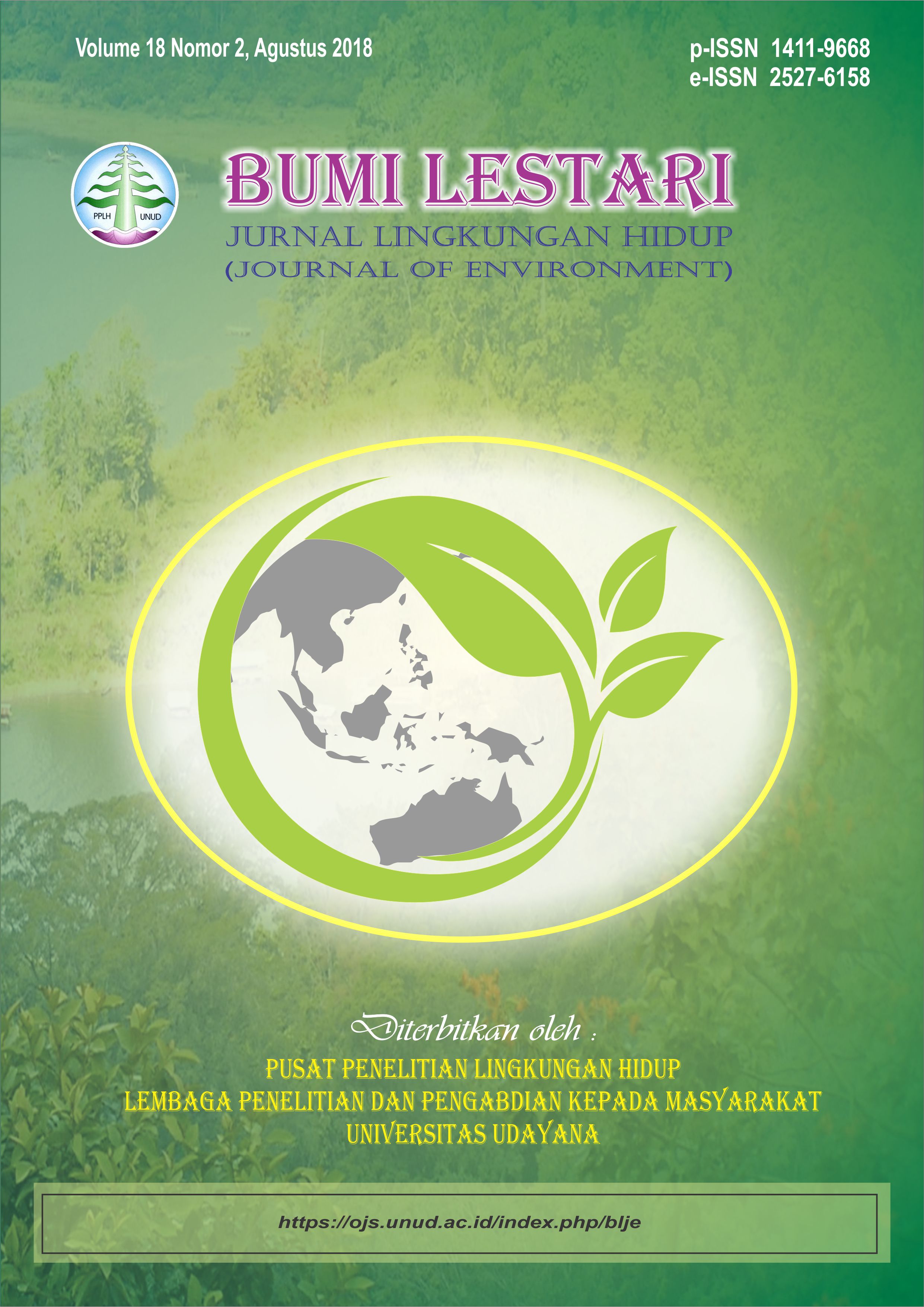Kajian Kualitas Lingkungan Fisik-Kimia Akibat Pengoperasian Pembangkit Listrik Tenaga Surya Terpusat Di Desa Oelpuah Kecamatan Kupang Tengah Kabupaten Kupang
Abstract
The utilization of renewable electric power plants (non-fossil) in friendly environment needs to be done by using of solar energy for electricity generation. PT. LEN Industry built solar power Plant on Oelpuah Village, Kupang Tengah Subdistrict, Kupang Regency, with a total capacity of 5 megawatts Peak, which currently operates and the biggest Solar Power Plant in Indonesian. As a result of the operation of these solar power, it can be expected to have environmental impacts. The purpose of this study was to determine the impact of Physical Chemistry like air quality, water quality and noise, inside and outside of solar power plant operation. The results showed, because of PLTS Operation, it has an impact to physical chemistry environmental quality, but the impaCT STILL below the threshold of environmental quality standards.
Downloads
Authors who publish with this journal agree to the following terms:
- All articles published by Bumi Lestari Journal of Environment and Environmental Reseach Center Udayana University are made available under an open access license worldwide immediately. This means everyone has free and unlimited access to the full-text of all articles published in Bumi Lestari Journal of Environment, and everyone is free to re-use the published material given proper accreditation/citation of the original publication. Open access publication is supported by authors' institutes or research funding agency by payment of a comparatively article processing charge for accepted articles (See Author Fees). Bumi Lestari Journal of Environment and Environmental Reseach Center Udayana University publish articles under the Creative Commons Attribution License.
- Authors are able to enter into separate, additional contractual arrangements for the non-exclusive distribution of the journal's published version of the work (e.g., post it to an institutional repository or publish it in a book), with an acknowledgement of its initial publication in this journal.
- Authors are permitted and encouraged to post their work online (e.g., in institutional repositories or on their website) prior to and during the submission process, as it can lead to productive exchanges, as well as earlier and greater citation of published work (See The Effect of Open Access).





